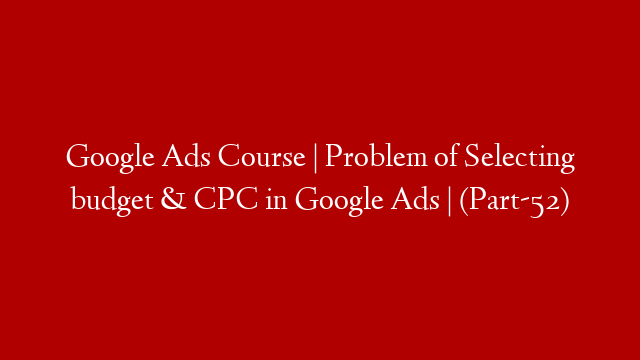What are Keywords?
How to do Keyword Research for SEO
Before we get into how to choose the right keywords, let’s first understand what keywords are. Keywords are nothing but words or phrases that best describe your content. For instance, if you wrote an article on “how to make a perfect omelette”, then some of the keywords for your article would be – omelette, recipes, cooking, eggs, etc.
Google and other search engines use these keywords to understand what your article is about and subsequently rank it on their SERPs (search engine results pages). That is why it is important to choose the right keywords for your articles – so that your content can be easily found by people who are searching for it.
Now that we know what keywords are, let’s take a look at how to do keyword research for SEO.
The first step in keyword research is to brainstorm all the potential keywords that you can think of that are relevant to your article. To do this, you can use a keyword research tool like Google AdWords Keyword Planner or Ubersuggest. Alternatively, you can also just use a simple Google search.
Once you have a list of potential keywords, the next step is to check how difficult it would be to rank for each of these keywords. You can do this using a tool like MozKeyword Explorer or SEMrush Keyword Difficulty Tool. Generally speaking, you should target keywords that have a difficulty score of below 40%. This means that they are not too difficult to rank for, but at the same time, there is enough search volume so that you can get some good traffic from them.
Once you have identified some good target keywords, the next step is to check how much traffic each of these keywords gets every month using a tool like Google AdWords Keyword Planner or SEMrush Traffic Estimator Tool. Generally speaking, you should aim for keywords that get at least 1,000 searches per month. This will ensure that there is enough traffic available for you to get some good traffic from them.
Now that we know how to do keyword research for SEO, let’s take a look at how to choose the right keywords. There are a few factors that you need to consider when choosing the right keywords:
Relevance: The first and foremost factor to consider when choosing keywords is relevance. The keyword should be relevant to the topic of your article. Otherwise, there is no point in targeting that keyword as it will not help you get any traffic from organic search.
Search Volume: The second factor to consider is search volume. This refers to the number of people who are searching for that particular keyword every month. As we mentioned earlier, you should ideally aim for keywords with at least 1,000 searches per month so that you can get some good traffic from them. However, don’t sacrifice relevance for search volume – make sure that the keyword is still relevant even if it has low search volume.
Difficulty: The third factor to consider is difficulty score which refers to how difficult it would be rank on page one of Google SERP’s (search engine results pages)for a particular keyword .You can use a tool like MozKeyword Explorer or SEMrush KeyWord Difficulty Toolto check difficulty scores . Generally speaking ,You should target keyword with difficulty scores below 40% as they will not too difficultto rank but have good amount of search volume .This signifies good opportunity especially if you’re starting out fresh and optimising webpages targeting such low hanging fruit keywords could increase ranking drastically in short period time thus resulting in increased website organic traffic..
CPC (Cost Per Click): The fourth factor CPC (cost per click) which refers average amount advertiser pays per click in google ads When targeting high commercial intent customers ,one must focus on high CPCvalue although this might sacrifice little bit relevance and search volume .But if done correctly this could result BIG TIME because high CPC generally means high conversion rate which directly impact $$$ profit $$$..
Conclusion : Targeting Relevant ,Low difficulty ,high Search Volume &High CPC value could result in increased website organic traffic &CCTA= Conversion Rate Which directly impact $$$ profit $$$



